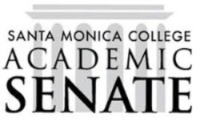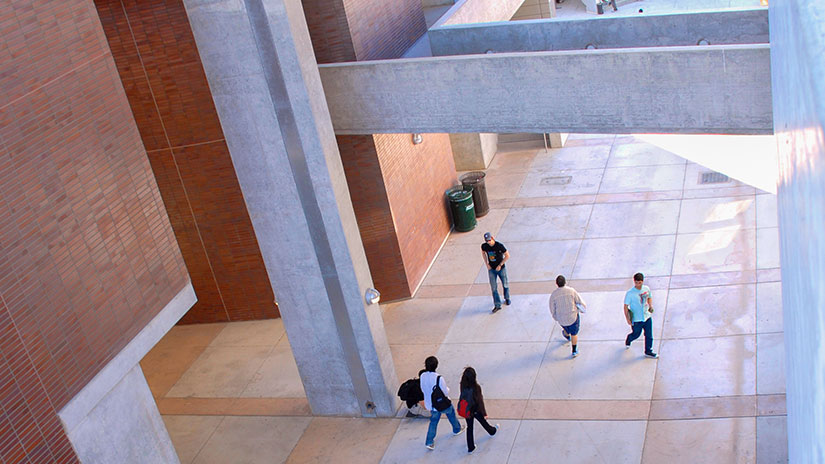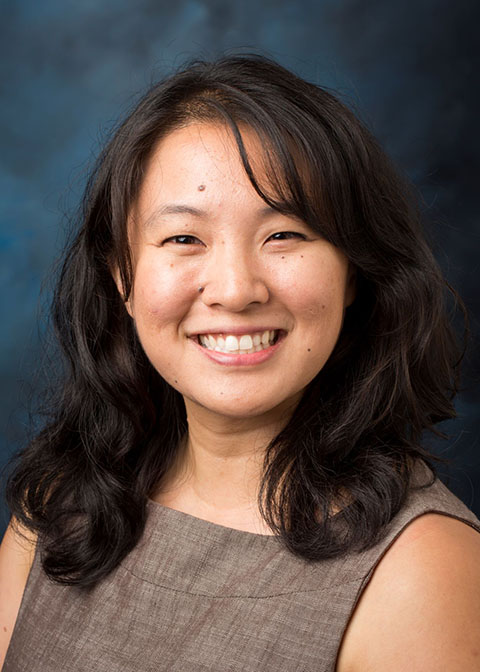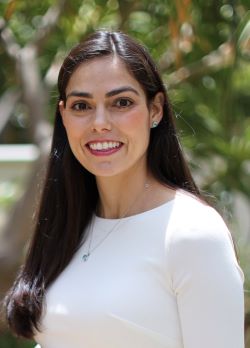2023-2024 Academic Senate Executive Committee
Charge for Ad-Hoc Artificial Intelligence Committee
This Ad-Hoc committee of the Santa Monica College Academic Senate will convene to:
- Develop a faculty leadership framework to assist each department/division in the area of Artificial Intelligence (AI)
The committee’s work is in response to the ongoing development of AI and its impact on the working and learning environment.
The Ad-Hoc AI committee will make recommendations to the Senate for approval through established shared governance processes according to Senate bylaws by the conclusion of the 2023-24 academic year or the conclusion of its business and be dissolved at that time.
FUNCTION
-
Advocates for Santa Monica College's Career Technical Education programs using a transparent process to promote the development, expansion, and improvement of Career Technical Education programs on campus.
-
Reviews labor market trends for career pathways and skills development.
-
Makes recommendations regarding innovation in the development of new programs and the directions of existing programs.
-
Enhances communication among CTE programs at SMC.
-
Researches and discusses industry trends.
-
Gathers and utilizes labor market information.
-
Encourages information-sharing and the leveraging of resources whenever possible.
-
Determines the necessary skills, student recruitment needs, and overall costs of establishing new programs.
-
Recommends distribution of Perkins funds.
-
To review and recommend to the Academic Senate action on existing and proposed curricula, courses, prerequisites, corequisites, advisories and programs;
-
To encourage and recommend development of new curricula and courses;
-
To assist faculty in preparing curricular proposals to meet Title 5 and matriculation mandates and district goals and objectives as stated in the college's mission;
-
To disseminate curricular information and recommendations to the department chairs and the Academic Senate;
-
To implement appropriate state-mandated regulations or policies that affect curriculum;
-
To recommend to the Academic Senate additions, deletions, and modifications in general education patterns for the Associate in Arts (AA) degree, the Intersegmental General Education Transfer Curriculum (IGETC), the California State University (CSU) General Education Certification Requirements, and Occupational Certificate Requirements;
-
To recommend to the Academic Senate proposals to implement curriculum transformation;
-
To ensure that the Santa Monica College Catalog contains only those courses offered on a regular basis;
-
To request, consider, and respond to reports from various Academic Senate committees and college groups that have a direct bearing on matters of curriculum;
-
To help assure that the curriculum at Santa Monica College supports the college's mission, supports its goals, and meets the needs of its students; and
-
To perform other duties assigned by the Academic Senate president with the advice and consent of the Senate.

Vacant
- Begin a process of acknowledgment, reconciliation, and healing.
- Identify the structures, policies, and regulations that may perpetuate a colonized hierarchy and discuss ways to reduce their harm.
- Respond to state- and college-wide undertakings and propositions.
- Examine inherited constructs and culture and their effects on the campus and its people.
The membership of the Department Chairs Committee is comprised of all department chairs. Others may be invited as non-voting interested parties.
Under the direction of the Academic Senate President and the Committee of the Whole, the committee addresses matters that affect academic, professional, and organizational aspects of the departments and special programs and facilitates the flow of information between departments and programs, the Academic Senate, and the District.
-
Conduct elections for Academic Senate and Curriculum committee representation during the Spring semester.
-
Ensure compliance with and integrity of the process set forth in the Academic Senate by-laws.
- In conjunction with the Dean of Academic Affairs, oversees compliance with the Department Chair election process. May occur in Fall or Spring depending on Chair terms and special elections.
-
Reviews the Academic Senate Constitution and By-Laws annually and when appropriate, brings committee recommendations to the Academic Senate.
-
Considers other matters deemed as appropriate by the Academic Senate. (Revised March 14, 2006; 47-0)
FUNCTION
-
Support the Center for Environmental and Urban Studies
-
Support the continued development and growth of ecological literacy and the continued Greening of the Curriculum at the College.
-
Support efforts to enhance the College's sustainability
-
Facilitate partnerships to enhance and develop College environmental programs
-
Work with the Associated Students, the District Planning and Advisory Council, and other College committees to address environmental concerns at the College.
-
Sponsor environmentally relevant activities and programs at the college.
FUNCTION
-
Oversees accounting for Senate finances.
-
Prepares an annual Senate budget in consultation with the Senate President.
-
Makes Annual Senate budget reports to the Senate.
- Actively seeks guidance and assistance from SMC students and staff in developing and promoting programs and activities that foster global citizenship;

Vacant
-
Takes a leadership role in academic technology planning and makes recommendations to the Senate regarding changes to relevant Board of Trustees’ policies and/or Administrative Regulations.
-
Makes recommendations to the Senate regarding information technology and digital education (systems, resources and pedagogy) for academic programs.
-
Advises and collaborates with the academic community on information technology and technology as it relates to instruction including, but not limited to, digital education.
-
Collaborates and coordinates on areas of mutual interest with other Academic Senate committees and constituencies.
-
Requests and prioritizes academic departmental technology needs and forwards its recommendations to the Technology Planning Subcommittee of the District Planning and Advisory Council.
Institutional effectiveness is the extent to which the college meets its mission and goals. The Institutional Effectiveness (IE) Committee is responsible for:
- reviewing data metrics and other information assessing institutional effectiveness,
- making recommendations to DPAC to identify college priorities and institutional planning based on analyses of the college’s performance on the IE metrics against target goals and institution-set standards; and,
- providing input on the data to be included in the program review process.
All committee work is done with the purpose of improving institutional quality, student equity, and success.
- Recommends relevant institutional effectiveness (IE) and equity metrics to collect based on institutional priorities and initiatives.
- Participates in the goal-setting process for IE metrics and student equity metrics.
- Monitors performance on IE and equity metrics against target goals and institution-set standards.
- Advises the Program Review and Curriculum Committees and departments on issues related to outcomes assessment and program evaluation to ensure processes are integrated with college-wide goals, initiatives, and metrics.
- Supports departments and units in equitizing outcome statements and assessment processes.
- Sustains the infrastructure for reporting and collecting outcomes data.
- Facilitates the linkage between the Office of Institutional Research and the planning process through the identification and analysis of institutional data and surveys such as student engagement, campus climate, racial climate, and other surveys.
- Make suggestions to DPAC especially in regard to the development and assessment of the College’s strategic initiatives.
- Reviews institutional level outcomes data to inform program and institutional decision-making and planning.
- Promotes data-informed decision-making and planning processes and a culture of equity-minded inquiry at the college.
- Communicate the IE metrics and goals to the campus community.

Vacant
-
Studying and tracking proposed and enacted federal, state, and local legislation that impacts California community colleges, CCC faculty, and CCC faculty roles pertaining to the 10+1 academic and professional matters.
-
Informing and making recommendations to the Santa Monica College Academic Senate and faculty regarding that legislation.
-
Researching proposed and passed resolutions and positions taken by the Academic Senate for California Community Colleges and informing the SMC Academic Senate regarding those positions.
- Contacts new faculty to invite them to participate in a yearlong faculty learning community with other new faculty hires (both full-time and part-time).
- Organizes and coordinates professional development workshops for new faculty that encourage the use of effective pedagogical approaches focused on inclusion, equity, diversity, justice, and evidence-based practices. Workshops foster a climate for innovation in teaching and learning and aid in successful pedagogy development and progress.
- Cultivates community through social events and activities that promote community-building, networking, collaboration, and a safe space for dialogue, sharing ideas, questions, and concerns.
- Arranges opportunities for new faculty to learn about academic support services and campus resources to improve their student success.
- Coordinates faculty development mentoring program for new faculty members to receive advice, informal feedback, and build relationships with tenured faculty mentors outside their department.
- Provides new faculty with opportunities to explore service activities at the institutional, professional, and community level.
- Interacts with other academic senate committees, departments, programs, and services on campus to support and meet the needs of new faculty as they navigate through their first year at SMC.
- Assess and evaluates the first-year faculty experience and makes recommendations to the Academic Senate regarding ongoing training, resources and support for new faculty in their first year and beyond.
- Invites recent faculty learning community participants to join the new faculty committee and improve the yearlong program and successful transition for future new faculty hires.
-
Provides a forum for exploring and addressing evolving issues in distance and online education and disseminates information about these issues to the campus community.
-
Makes recommendations to the Academic Senate regarding distance education and other online delivery of instructional material, including the development of administrative regulations and Board of Trustees’ policies, course management systems, accessibility, and other related digital education products and services.
-
Supports faculty in the development and delivery of their online courses by establishing and maintaining evidence-based best practices for accessible, equitable, pedagogically-sound online course delivery and recommends skills for teaching online.
-
Collaborates and coordinates on areas of mutual interest with other senate committees and campus constituencies.
- Support faculty in the process of integrating OER/ZTC options into their curriculum.
- Provide professional development about OER/ZTC for the campus community.
- Support department collaboration around ZTC efforts and degrees.
- Monitor and evaluate campus data related to OER, including data examining Equity and Success rates.
- Establish and manage OER/ZTC marketing efforts to support student awareness.
- Explore and establish sustainable support structures for OER/ZTC efforts and activities (i.e. faculty sabbaticals, grant opportunities, etc).
- Reviews District Policies and Administrative Regulations on academic personnel matters.
- Drafts new policies and regulations as directed by the Senate.
- Recommends new policies and regulations to the Senate for adoption by the Board of Trustees.
- Informs the Faculty Association when contract-related policies are under discussion.
FUNCTION
-
Recommends a Code of Ethics and publicizes it to the campus community, and promotes understanding of and adherence to such Code of Ethics and policies as may be adopted by the Senate.
-
Recommends policies related to academic freedom and other rights and responsibilities of faculty.
-
Develops, recommends, and makes available a list of appropriate referrals to assist members of the College community regarding any complaints or alleged violation of Senate policies such as those on academic freedom, responsibility or ethics.
-
Supports and advises faculty as needed regarding ethical issues brought to its attention.
-
Performs, at the direction of the Executive Committee or the Academic Senate President, any other duties as assigned relating to Senate or professional ethical matters.
- To prepare an annual report to the College District Planning Advisory Council (DPAC) based on overarching trends and needs across programs as observed during the review process.
- To evaluate, modify, and update the process for Program Review.
- To review all existing instructional, student and instructional support services, and administrative services programs on both an annual and six-year cycle to document and ensure that all programs are engaged in ongoing self-evaluation and assessment to maintain and enhance their quality, vitality, and responsiveness to student, faculty, program and institutional needs and concerns.
- To recognizes strengths and achievements of programs.
- To verify the development and assessment of course - and/or programappropriate outcomes and assessment plans, and ensure assessments are utilized to inform program improvement.
- To provide program-specific recommendations to support program goals and planning based on information presented to the committee during the review process.
- To prepare and disseminate Executive Summaries for each program reviewed that includes commendations, recommendations (both program-specific and/or institutional) and a general summary of the submitted Program Review report.
- To identify overarching trends and needs across programs that inform the annual update of SMC's Master Plan for Education.
- Develops and revises administrative regulations. When these issues are addressed in Title 5 and the California Education Code, ensure that changes are in compliance with relevant guidelines.
- Reviews district board policies concerning student affairs matters, and when appropriate, recommend changes.
- Interfaces with any senate committee that addresses student affairs.
FUNCTION

Vacant
-
Identify needs and make recommendations for instructional support, systems, and services.
-
Recommend training strategies for tutoring services in consultation with the appropriate department.
-
Recommend and support strategies for promoting awareness and use of instructional support services.
-
Review and respond to relevant findings and publications of the Office of Institutional Research and submit research proposals as needed.












